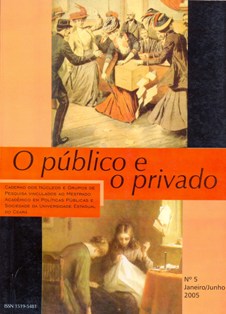Educational Politics and Reforms
arenas of contradictions and clashes around teacher training and professionalization
Keywords:
Educational Policy, Teacher training, Professional development, Training PoliticsAbstract
This article aims to discuss teacher training policies for Latin America and Brazil, especially in the 1990s. In this sense, the role of teachers in the face of constant educational reforms and the demands placed on today's society is highlighted. The intense change agenda has assigned new roles and responsibilities to teachers. Professional requirements are increased, as well as a discourse that emphasizes the social importance of the teaching figure is disseminated, highlighting the need for intensive actions for continuing education. On the other hand, the teacher deals with adverse working conditions that do not correspond to expectations, demands and the announced importance of the teaching profession. The rationalization and privatization present in the current neoliberal policies constitute an external control to the teaching profession. In these processes, teachers are defined according to criteria of technical rationality, accentuating the dichotomy between theory and practice and between planning and execution. In the case of continuing education, there are many inconsistencies between the profile intended for this new teacher and the training strategies proposed and developed by educational administrations. In this perspective, it is important to consider teachers as key characters in the struggle for quality education for students, as subjects with possibilities to create alternatives and reflect on the problems of their training and pedagogical practice. appropriating critically these contextual elements, and understanding the interfaces of educational policy with personal and professional development.











